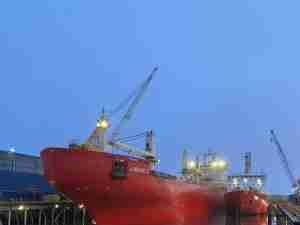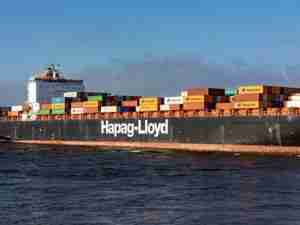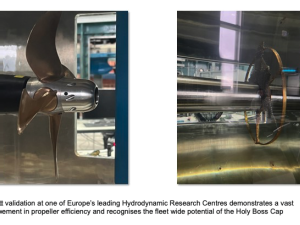BHP braces for more short-term volatility in iron ore market
By: Reuters | Aug 25 2015 at 06:18 PM | Maritime
SYDNEY - BHP Billiton , the world’s biggest mining company, on Tuesday painted a bleak near-term outlook for iron ore producers after posting a larger-than-expected 52 percent fall in annual profit.
Steel production in China - the key barometer measuring the health of BHP’s all-important iron ore business - fell 1.3 percent in the second half of the 2015 financial year from a year earlier, triggered largely by a slowing construction sector, the company said.
“In the short term, we expect ongoing economic reforms in China to contribute to periods of market volatility,” BHP Chief Executive Andrew Mackenzie told reporters.
“And, while we remain confident in the long-term outlook for commodities demand as emerging economies continue to urbanise and industrialise, we have lowered our forecast of peak Chinese steel production to between 935 million tonnes and 985 million tonnes in the mid 2020’s,” he said.
This backdrop will favour low-cost producers that can benefit from greater economies of scale, according to Mackenzie.
Iron ore, the main ingredient in steel-making, has moved from boom to bust in the past 18 months as massive new supply flooded markets.
BHP ranks as the world’s third-biggest iron ore producer behind Vale and fellow Anglo Australian group Rio Tinto.
Iron ore accounted for more than three quarters of BHP’s fiscal 2015 operating profit of $8.67 billion.
In iron ore, BHP estimates about 100 million tonnes of seaborne supply will enter the market in 2015, outweighing forecast demand growth.
BHP is targeting an average cash production cost of $15 a tonne in fiscal 2016, among the lowest in the sector, and is lifting overall output by 6 percent to 247 million tonnes by next July.
Rio Tinto expects to deliver 240 million tonnes of iron ore to China alone this year, 40 million more than last year.
The increases have been criticised by Fortescue Metals Group , a distant fourth in global iron ore production.
Fortescue Chief Executive Nev Power in July called an end to expansion work at Fortescue’s Australian mines, saying more than enough ore was being mined to meet global demand. He called on its larger rivals do the same.
The iron ore price opened in January at $71.20 a tonne and finished on June 30 at $59.30, down 17 percent. It traded as low as $44.10 a tonne in July and was at $53.50 on Tuesday.










